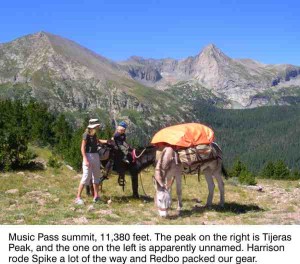Brief by Central Staff
Language – October 2007 – Colorado Central Magazine
If you’re writing a trend piece for a national magazine, the usual trick is to start small and work out. That is, you focus on one person somewhere, then expand to the big picture.
So it was with Bob Diddlebock, whose “Postcard: Colorado” concerning “What the decline of the ‘devil’s rope’ says about the West” appeared in the Sept. 10 edition of Time.
It seems that Frank Lorenti, a resident of Minturn, put up some barbed wire last winter to discourage snowmobilers from driving over his property. The town board thought that could lead to even more trouble, and banned barbed-wire fencing in town.
From that, Diddlebock strung a story of a changing West, even if one of the Colorado towns that banned barbed wire was Craig, where you can likely still go into a diner and order a cup of coffee without answering half a dozen questions about beans, roasts, preparation, and additives.
As for Minturn, he describes it as an “old ranching and mining community.” While there were a few ranches in the area, the mining was up the Eagle River at Gilman. Minturn was a railroad town, pure and simple, founded by the Denver & Rio Grande as a division point where trains changed crews.
It was also a place to attach helper engines to trains climbing the 3% grade on the west side of Tennessee Pass. Minturn stayed on the railroad job until 1997, when the Union Pacific, which had acquired the route after a merger, put the line out of service. How could Diddlebock have missed that?
Perhaps the Cliché Police require all mountain towns to have been “ranching and mining,” even if they were really railroad towns, resort towns, or sawmill towns. But if that’s the case, how did Minturn get to be “a scenic little burg” rather than the customary “quiet mountain hamlet” ?

